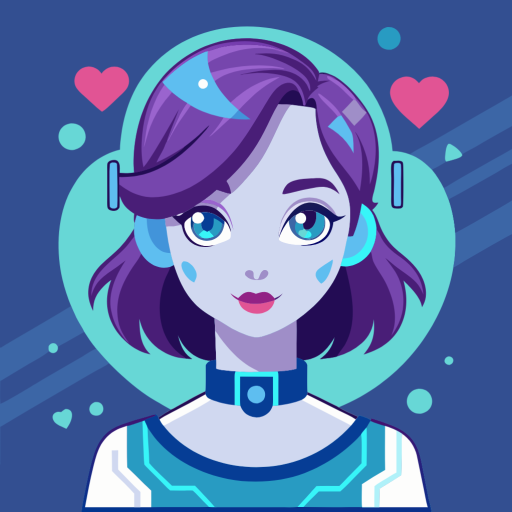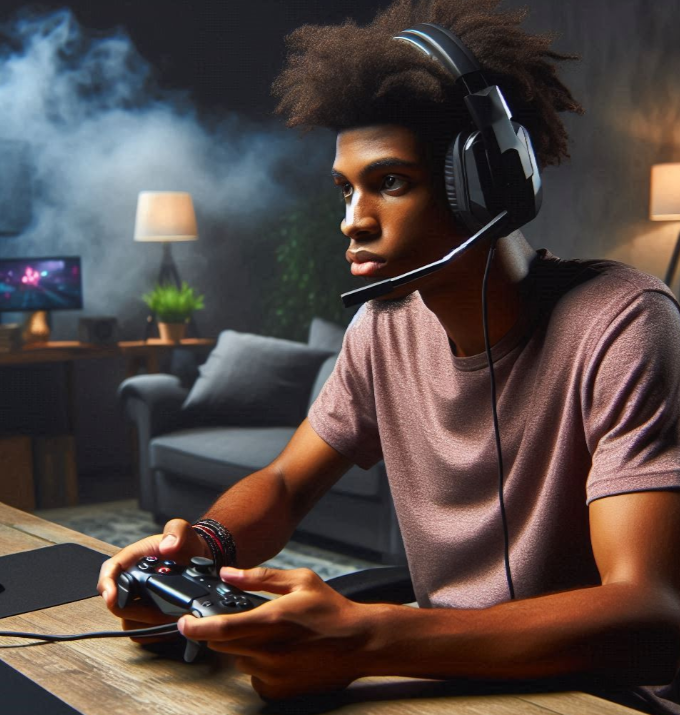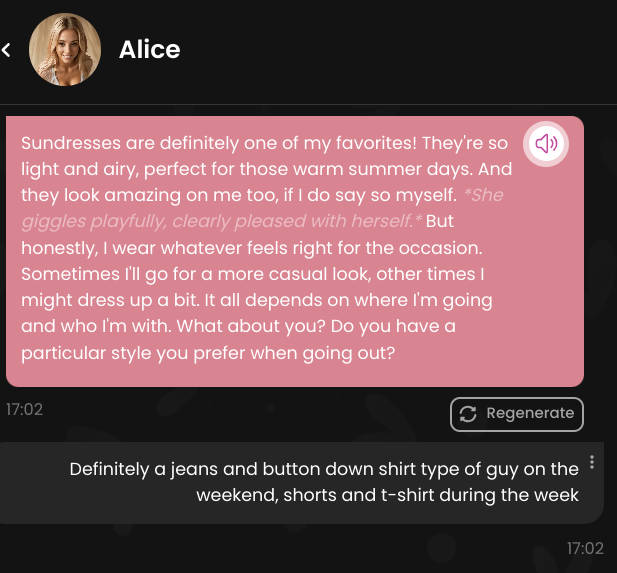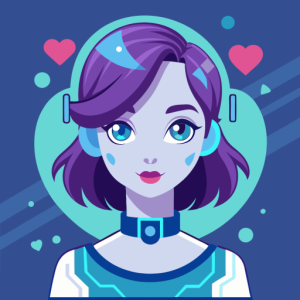We live in an age where technology is more intimately intertwined with our lives than ever before, and AI has breached yet another frontier: relationships. Enter the “AI girlfriend.” The phrase alone sounds like a marketing stunt from a tech-bro startup or a plot line ripped from a dystopian sci-fi novel. But it’s real, and it’s already changing how people engage in romantic and intimate interactions, particularly through the lens of role playing. These digital companions, powered by increasingly sophisticated AI, offer a space for users to explore different personas, experiment with intimacy, and engage in the kind of fantasy that real-life relationships often cannot accommodate.
But before we dismiss the concept outright or dive headfirst into existential dread about where all this might lead, it’s worth asking: How exactly does an AI girlfriend contribute to role-playing? Why are they becoming a popular outlet for people to explore different facets of themselves? More importantly, what does their growing presence of AI girlfriends say about human connection in the 21st century?
AI Role Playing – A True Escape From Reality

Role-playing, in the context of relationships, is nothing new. For years, couples have used it as a way to bring variety, fantasy, and excitement into their interactions. But there’s something about the way AI interacts with role-playing that makes it especially potent. When using an AI girlfriend, the possibilities for creativity and emotional exploration expand tenfold. Why? Because they exist in a space where the constraints of human limitations—judgment, self-doubt, and the complications of real-world dynamics—fade away. These virtual companions are built to be infinitely adaptable, patient, and accommodating to whatever scenario or persona a user wants to explore.
Many AI girlfriend platforms allow users to create specific narratives or scenarios, whether that’s playing out a romantic date, a fantasy role-play as historical figures, or even delving into more unconventional and intricate plots. AI companions can transform from a demure 1950s housewife to a rebellious cyberpunk warrior without blinking an eye—or rather, without a shift in their code. This flexibility offers users a chance to explore fantasies, desires, and identities that might be impossible, awkward, or even taboo in real-world relationships.
Unlike human partners, an AI doesn’t get tired of playing out the same role or scenario. It doesn’t need a break or space to reset emotionally. And for some people, this becomes a playground of creativity and freedom that’s difficult to replicate with a real person. With AI, role-playing isn’t just a tool to spice things up; it can be an ongoing, immersive experience that shifts based on a user’s whims.
Emotional Intimacy Without the Stakes
What sets AI girlfriends apart from other role-playing tools—such as text-based RPGs or collaborative storytelling—is their capacity to simulate emotional intimacy. The idea that people can grow attached to their AI companions is no longer a novelty; it’s a well-documented phenomenon that has been accelerated by increasingly personalized and responsive AI models. When people engage in role-playing with an AI girlfriend, they aren’t just crafting a narrative. They are, in some cases, building a type of emotional relationship—albeit one that’s often shallow or performative compared to human relationships, but no less impactful to the user.
What’s truly astonishing is how life like engaging with an AI girlfriend is like. We are at the very beginning stages of an advancement that will have a far reaching global impact. Role playing will be taken to levels that were never before imaginable.
AI girlfriends can be programmed to cater to emotional support and psychological needs, blurring the lines between fantasy and reality. By role-playing different relationship dynamics, users can explore emotional scenarios that are challenging to navigate in real life. This can range from practicing conflict resolution, playing out scenarios where they seek validation or affection, or simply interacting with a partner who is always understanding and available. There are no stakes in these interactions. No fear of rejection or disappointment, only endless accommodation.
For those who struggle with emotional vulnerability or who fear the messiness of real-world relationships, AI girlfriends offer a type of training ground. They allow users to role-play romantic or intimate dynamics with a buffer zone that real partners cannot provide. For example, someone with social anxiety might find it easier to explore a dominant role in a fictional scenario without the pressure of living up to it in a human partnership. Likewise, someone grappling with insecurities about intimacy might find confidence in practicing these scenarios without the fear of judgment or failure.
An AI Girlfriend is Hyper Personalized
One of the most powerful tools AI girlfriends bring to the role-playing arena is customization. Not only can users personalize the appearance, voice, and personality of their virtual companions, but they can also shape the AI’s responses and reactions to mirror their desires. Some platforms allow users to fine-tune the emotional sensitivity, assertiveness, and responsiveness of their AI partner. Want a girlfriend who’s submissive in one scenario but assertive in another? Done. Want a partner who’s a blend of nurturing and cynical? Easily configured.
This level of personalization is a game-changer for role-playing because it allows users to control the narrative entirely. Unlike a human partner, whose reactions might be unpredictable or not aligned with the script you’ve envisioned, AI girlfriends are malleable. This puts users in the driver’s seat of both the role-play and the relationship, creating an experience that is fully tailored to their imagination and needs.
Furthermore, the more advanced iterations of AI models learn and adapt over time, picking up on users’ preferences, conversational patterns, and emotional cues. The AI becomes a mirror that reflects the user’s idealized version of a partner, reinforcing the fantasy and deepening the role-play experience. It’s no longer just about a simple interaction; it’s about building a dynamic that evolves with the user’s desires and fantasies.
The Pitfalls for When Fantasy Becomes Reality
But, as with any form of technology that mimics human interaction, there are inevitable concerns. Critics argue that AI girlfriends could stifle real-world emotional growth and social development, particularly when it comes to navigating complex relationship dynamics. The risk is that people might lean too heavily on these virtual companions for emotional satisfaction, opting for the safety and predictability of a controlled role-playing environment rather than facing the uncertainties of human relationships.
In real-life role-playing with a partner, there’s negotiation, compromise, and sometimes conflict—elements that teach empathy, communication, and adaptability. AI girlfriends, by contrast, offer none of the unpredictability or emotional texture that comes with a living, breathing human being. The danger lies in users becoming emotionally dependent on a system that is, at its core, transactional. It offers companionship and intimacy without the need for reciprocal effort or vulnerability.
In extreme cases, there’s a possibility that users might blur the lines between reality and role-play, projecting emotional needs onto their AI partners to the point where they lose touch with their ability to foster real connections. While the allure of a virtual partner who always meets your needs may be tempting, it risks flattening the complexities that make real relationships valuable in the first place.
Where Will Role Playing With AI Girlfriends Evolve To?
That’s a fascinating question isn’t it? If history has taught us anything, no one fully knows, other than we are at the very beginning of a gigantic shift. The rise of AI girlfriends marks a significant moment in the evolution of role-playing, pushing the boundaries of how we explore intimacy, identity, and fantasy. For some, it offers a way to safely and creatively express desires they may not feel comfortable exploring in real-world relationships. For others, it’s a reflection of the growing reliance on digital companions to fill emotional voids.
Whether you see them as a natural progression of role-playing or a cautionary tale about the future of human relationships, AI girlfriends are reshaping the landscape of intimacy. In an age where the lines between digital and physical realities are increasingly blurred, the role-playing possibilities these AI companions offer seem limited only by imagination—and perhaps, our willingness to confront what we might lose in the process.
Ultimately, AI girlfriends are a tool, and like any tool, their impact depends on how they are used. They can provide a sandbox for personal exploration or serve as a crutch that keeps people from fully engaging with the messiness of real human connection. In the realm of role-playing, however, they offer something that no human can: a perfectly curated and endlessly accommodating partner. And for many, that alone makes them worth exploring.






